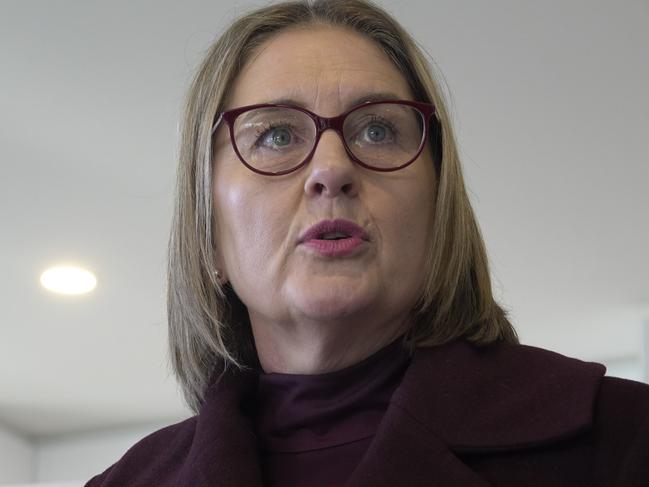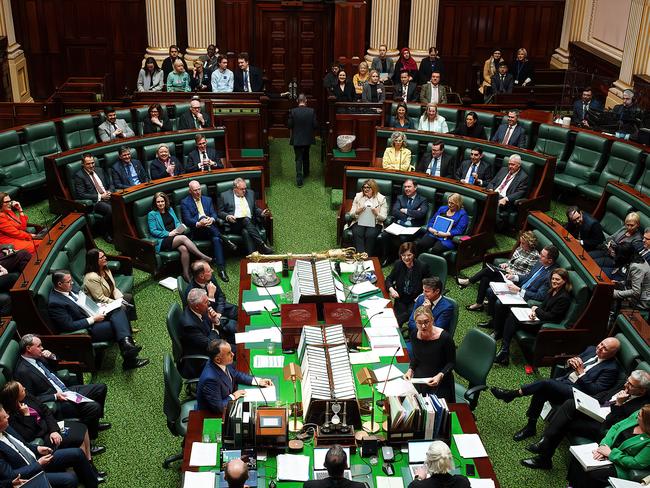Victorian MPs lock in a 3.5 per cent pay rise, pushing annual salaries above $200,000
Victorian members of parliament have secured a 3.5 per cent pay increase — bringing Premier Jacinta Allan’s salary to almost $500,000, while MPs will take home $200,000 for the first time.

Victoria
Don't miss out on the headlines from Victoria. Followed categories will be added to My News.
Victorian MPs have locked in a 3.5 per cent pay rise, taking their annual salary above $200,000 for the first time.
The Victorian Independent Remuneration Tribunal on Monday released its annual determination, ruling a 3.5 per cent increase from July 1.
It means MPs’ base salary will increase from $198,839 to $205,798 — adding $890,752 to the annual bill for the state’s 128 parliamentarians.
The tribunal also increased the expense allowance for eligible specified parliamentary office holders by 3.5 per cent.
It brings Premier Jacinta Allan’s pay to almost $500,000, made up of of $435,427 in salary and up to $62,597 in expense allowances.

The pay hike comes despite the tribunal receiving multiple submissions to reduce MPs’ pay.
It also comes amid growing tensions over a government edict to the state’s public health providers to drastically reduce their operating budgets.

Hospital whistleblowers say the only way they can meet bold new targets is by slashing both staff and frontline services.
In its published decision, the tribunal said it was “particularly mindful of the current financial position and wages policy of the Victorian Government and recent annual movements in wages and prices in Victoria.”
In its May budget the Allan government confirmed the state’s net debt would continue to climb to a record $188bn by 2027-28.
By that time it would account for a quarter of Victoria’s overall economy.
In a statement of reasons for its decision the tribunal said the public sector in Victoria had experienced lower wages growth than the private sector in recent years.
“Over the 12 months to the March quarter 2024, public sector wages grew by 2.5 per cent, compared with 3.9 per cent in the private sector,” it said.
It also said economic growth was forecast to pick up in coming years, driven by a recovery in household spending.
But it conceded employee costs were the State’s single largest operating expense, accounting for around 36 per cent of general government sector expenditure in 2022-23.
Those costs had increased by 45 per cent between 2017-18 and 2022-23, it said.
A government spokeswoman defended the payirse.
“Salary adjustments for Members of Parliament are a matter for the Victorian Independent Remuneration Tribunal, a body we established so these decisions are made independently and at arm’s length of government,” she said.




